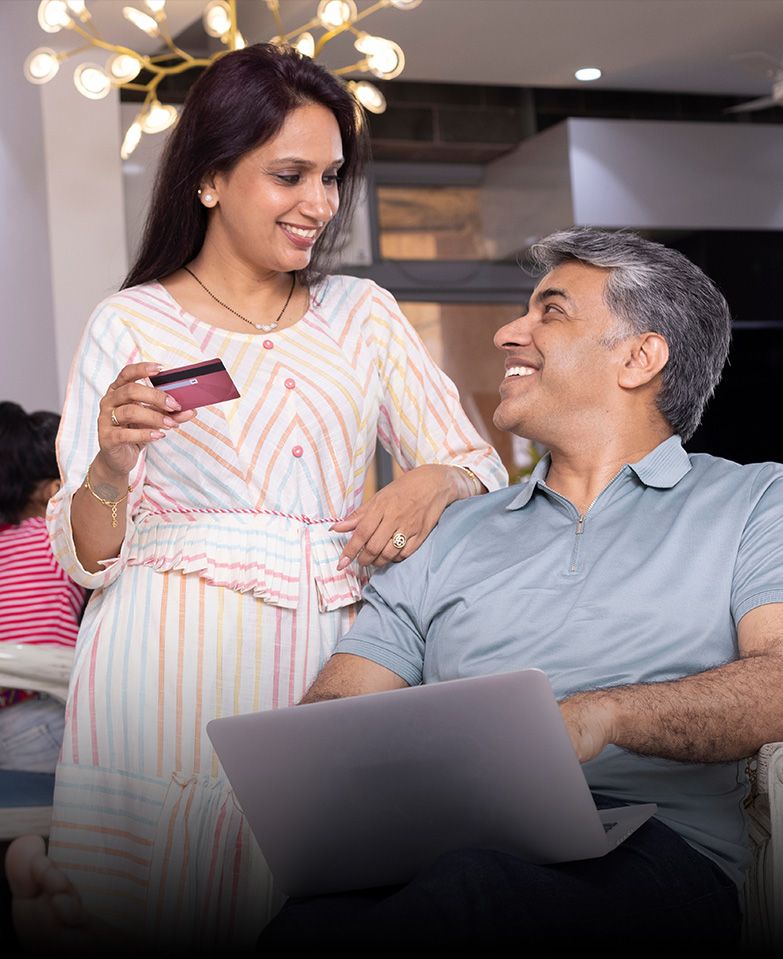
Simple Steps to Check Your Credit Card Balance
Key Takeaways
|
Credit Card Balance
Maintaining healthy financial practices is important for a strong credit profile. This also includes keeping track of your credit card balance. Knowing your credit card balance offers you a clear understanding of your available credit and aids in preventing needless debt, which is helpful when creating a budget or making purchases. This article will provide an overview and lead you through the basic procedure to check balance of your credit card or any other credit card in India.
This article will also help you to know how to check your credit card balance, keep control over the money you have and make wise judgments by sticking to these principles.
What is Credit Card Balance?
A credit card balance is the amount you pay to your credit card issuer. It stands for the unpaid balance that must be paid within a certain time frame, typically every month. Your credit card balance is not fixed and changes based on your usage, payments, interest rates, and other expenses. So, it is important to learn how to check your credit card balance.
Must Read: Top Benefits Of Using A Secured Credit Card
7 Ways to Check Your Credit Card Outstanding Balance
We'll go through a variety of options for your convenience, from the practicality of mobile applications and online banking to the conventional method of visiting your bank's branch.
- Internet Banking: The way we handle our finances has been completely transformed by Internet banking. Most banks provide online banking services that make it easier for credit card customers to view their unpaid balances.
- Mobile Application: Thanks to the dedicated mobile applications offered by many institutions, you can view your credit card information anywhere, at any time. Install the official mobile app of your bank, sign in and go to the credit card section. With just a few clicks, you can check your credit card balance, recent transactions, and other pertinent information from there.
- Mobile SMS: You can use mobile SMS services to check your credit card balance if you'd want a quick and easy way. In order to get alerts via SMS and balance updates, register your mobile phone with your bank. You will get an SMS with details about your outstanding amount when you send a specified SMS code or keyword issued by your bank to a designated number. This strategy is quite helpful when you don't have a smartphone or a restricted internet connection.
- Visiting the Bank's Branch: Checking your free credit card outstanding amount in person at a bank branch is the preferred choice for individuals who value in-person contacts more than anything else. You can verify your outstanding amount by going to the customer service desk or the credit card department, giving the personnel your credit card information and any necessary identification, and asking them to help. If you have any questions, you can ask bank employees for clarification or more information.
- Customer service: To serve credit cardholders, most banks provide specialised customer care helplines. You can ask about your outstanding amount. You will be walked through the procedure and given the relevant information by the customer support personnel. Be ready to respond to security questions asked for authentication.
- Visiting the ATM: ATMs offer a quick way to check credit card balance. Insert your credit card, enter your PIN, and select the balance enquiry option at any ATM connected to your credit card network. Your unpaid balance will be shown on the ATM's screen. After examining your card's balance, don't forget to take it out.
- Monthly Credit Card Statement: Credit card companies often send monthly statements that include information on your current amount, recent transactions, payment deadlines, and other important details. To get these statements regularly, be sure the bank has your current address on file. However, most banks nowadays send the credit card statements to your registered email ID.
Must Read: How to Improve Credit Score With A Secured Credit Card
Why is it Important to Check Your Credit Card Balance?
It's important to check your credit card balance to avoid debt accumulation and timely repayment. Let's explore how doing so can improve your financial situation.
- Protect yourself Against Fraudulent Activity: Cybercriminals are continually developing new strategies in the current digital environment to access private financial data without authorisation. Regularly checking your credit card balance lets you quickly spot any unauthorised or questionable purchases and notify the credit card company.
- Uphold Financial Restraint: Regularly checking your credit card balance enables you to assess your spending habits and determine if you are staying within your budget or going beyond. It helps you stay disciplined when it comes to spending and payments.
- Paying Bills on Time: Making on-time bill payments helps you build a strong credit score. You can track your billing cycle and due dates by regularly checking your credit card balance. A high credit score makes you eligible for numerous financial options offered by banks.
- Finding Billing Errors: Sometimes inaccuracies on credit card bills might be found, including multiple charges, wrong amounts, and unrecognised surcharges. Correcting billing errors as soon as they are discovered helps keep your financial records accurate and guarantees that you aren't paying for something you didn't buy.
- Control Credit Usage: You can efficiently control your credit utilisation by checking your credit card balance. Keeping your credit utilisation ratio low is good since it shows you are using credit responsibly and raises your credit score.
FAQs
1. Can I Check My Credit Card Balance Offline?
Yes, there are many ways to check credit card balance. You may check it using the following methods: You can call on the specific hotline number offered by many banks to determine the remaining amount on your credit card. Visit any ATM associated with your credit card network for free. Insert the card and follow the instructions. Visit the branch that issued your credit card and go to the credit card department.
2. Why is it Important to Check Credit Card Outstanding Balance?
You can analyse your spending and exercise more control by regularly checking your credit card amount. Making on-time payments is made easier by being aware of your balance. You can spot any fraudulent or unauthorised transactions by often checking the balance on your credit card. Your credit utilisation ratio, an important element in determining your credit score, is directly impacted by the balance on your open credit cards.
3. What is the Credit Card Minimum Balance?
The credit card minimum balance is the minimum amount to be paid each billing cycle to keep your account from accruing late fees and other penalties. Depending on your credit card type and the issuer, a different minimum amount may be required.
4. Will My Credit Card Balance Help in Improving My CIBIL Score?
Yes, the balance on your credit card may influence your CIBIL score. Your CIBIL score can be boosted by maintaining a respectable credit card balance and payment history. Even while your credit card balance might not be the only thing affecting your CIBIL score, keeping a low balance, paying your bills on time, and using your credit cards responsibly, in general, all assist in building creditworthiness and raising your CIBIL score over time.
Popular Searches on Kotak811
Kotak 811 | 811 Super Account | Super Savings Account Fees And Charges | Best Zero Balance Account Opening Online | Super.money Credit Card | Best Credit Card for Online Shopping In India | FD Credit Card | Visa Debit Card | Apply for Image Debit Card | Metal Debit Card | ActivMoney Savings Account | Open Savings Account Online | Savings Account Fees and Charges | Check Your CIBIL Score | Reactivate Dormant Account Online | Digital Savings Account | Apply for Personal Loan Online | Personal Loan for Education | Personal Loan For Marriage | Personal Loan For Medical Emergency | Personal Loan For Travel | Unsecured Personal Loans | Complete Guide on Fixed Deposit (FD) | Unfreeze Your Bank Account | How To Find Your Bank Account Number | How To Unfreeze Frozen Bank Account | How To Reactivate An Inactive Or Dormant Savings Account | What Is A Passbook | Zero Balance Current Account Opening Online | Zero Balance Current Account Fees & Charges | How To Get Airport Lounge Access On Debit Card | 811 Mobile Banking App
This Article is for information purposes only. The views expressed in this Article do not necessarily constitute the views of Kotak Mahindra Bank Ltd. (“Bank”) or its employees. Bank makes no warranty of any kind with respect to the completeness or accuracy of the material and articles contained in this Newsletter. The information contained in this Article is sourced from empanelled external experts for the benefit of the customers and it does not constitute legal advice from Kotak. Kotak, its directors, employees, and contributors shall not be responsible or liable for any damage or loss resulting from or arising due to reliance on or use of any information contained herein.
Share




